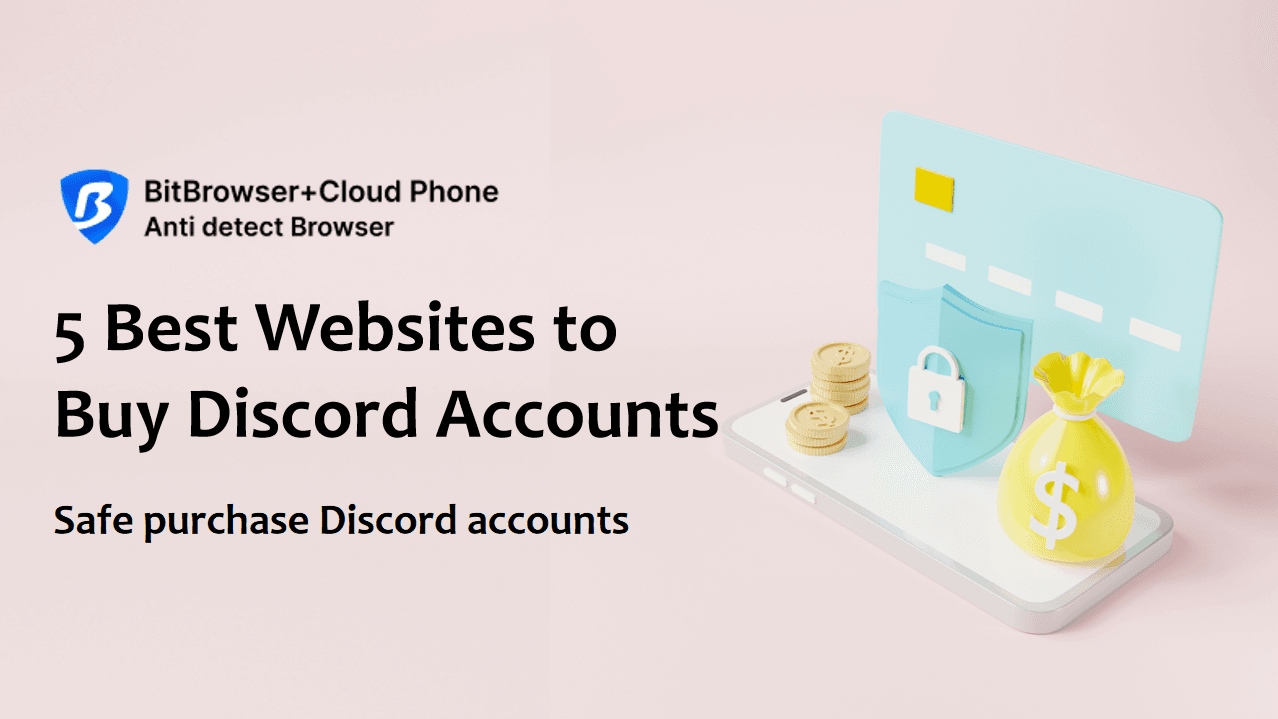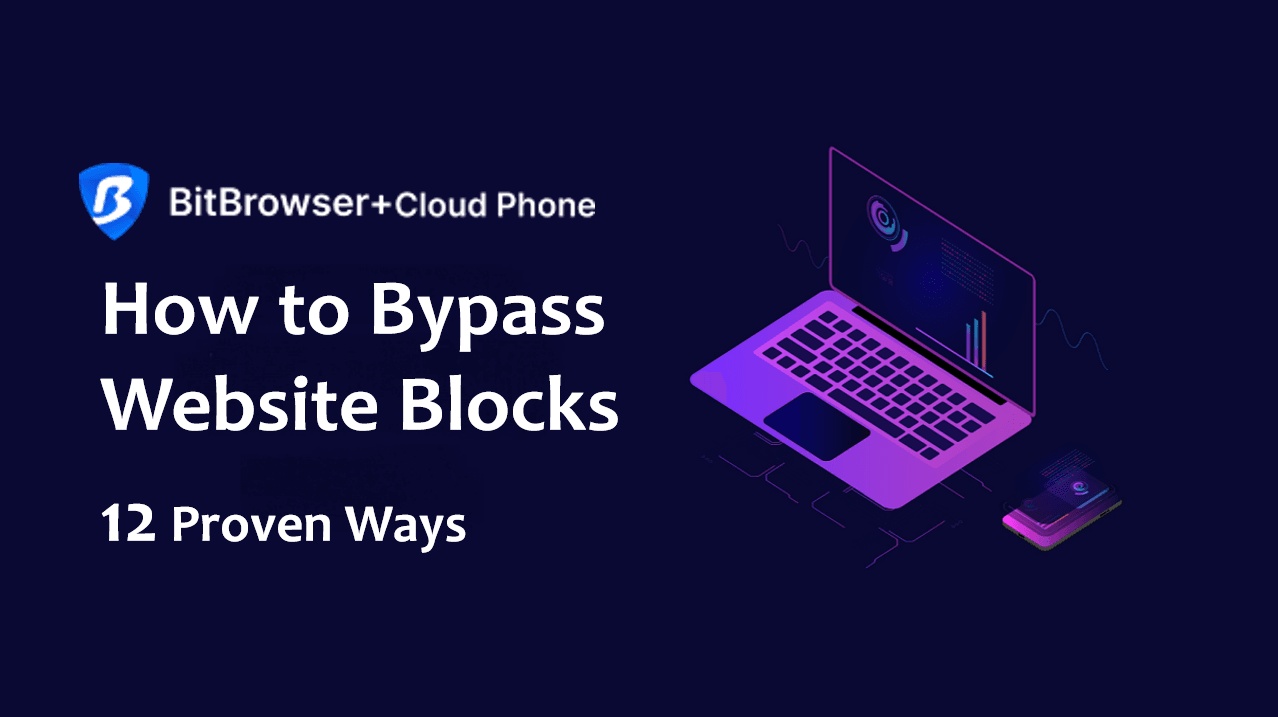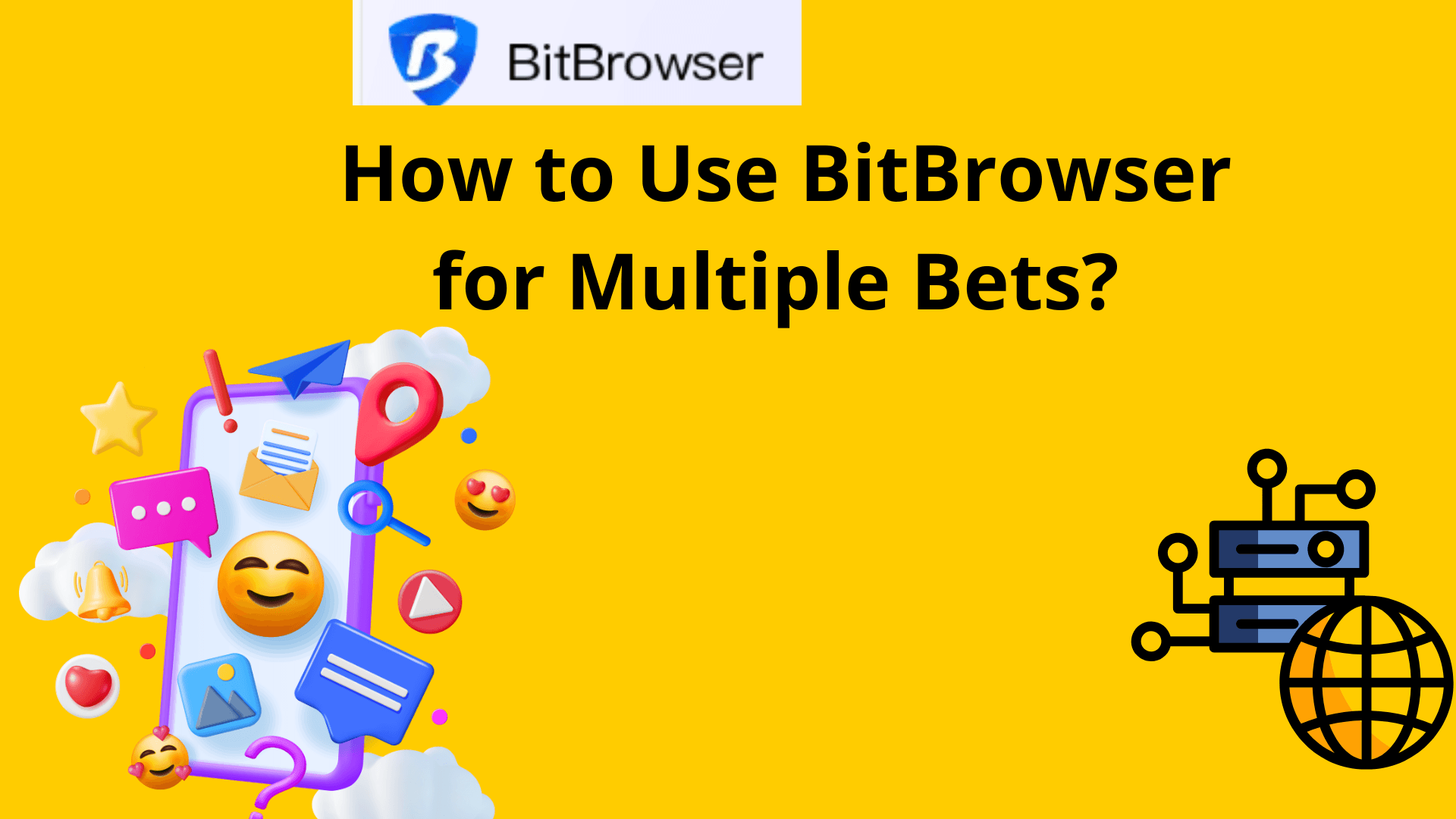
Hot Picks
How to Use BitBrowser for Multiple Bets?

Hot Picks
How to Automate Social Media Accounts
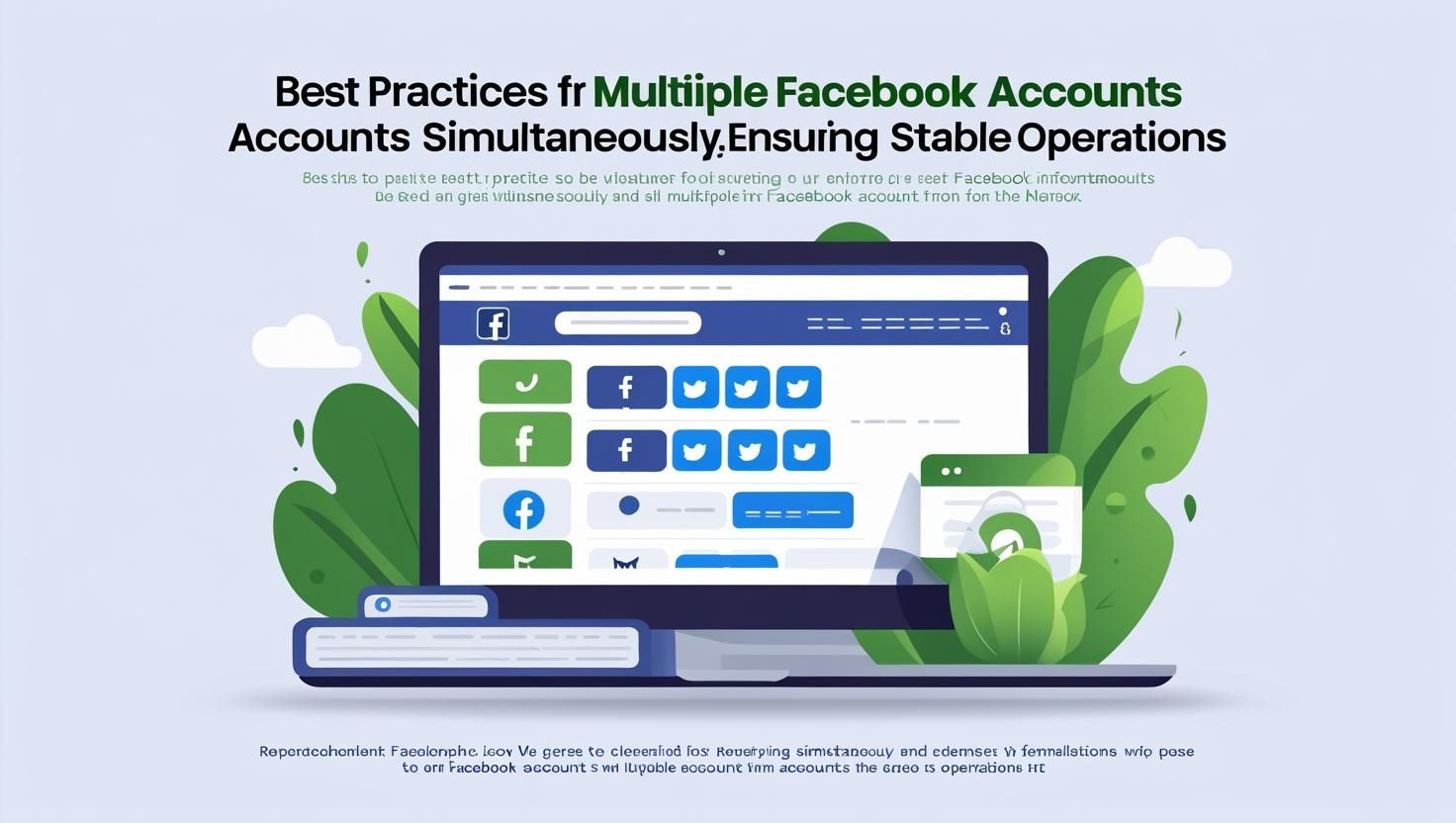
Hot Picks
How to Ensure Stable Facebook Operations When Managing Multiple Accounts
Top 10 Best Anonymous Web Browsers for Untraceable Surfing
 2025.03.29 07:56
2025.03.29 07:56Have you ever noticed ads following you around the web? Like when you search for a pair of shoes, and suddenly every site shows you shoe ads? Or when your social media feeds keep recommending the same products? This happens because websites track your browser fingerprint, IP address, and other details to monitor your activity. It's creepy, right?
The good news? You don't have to put up with being tracked. With the right apps for private browsing, you can vanish from digital radar, no IP tracing, no fingerprint profiling, no creepy ads. In this guide, I'll break down the top 10 anonymous web browsers built to protect your identity online. Whether you're a casual user tired of ads or a power user needing complete stealth, there's something here for you. If you're aiming for 100% anonymity, especially for managing multiple accounts or avoiding platform detection, BitBrowser is the go-to choice.
2 Key Tips to Stay Anonymous While Browsing Online
For casual users who just want to reduce tracking, using a web browser's private mode, like incognito mode, can help. Combine it with privacy-focused tools like DuckDuckGo or the Tor browser for a simple but effective shield. These are among the best incognito browser options for everyday protection.
For advanced users seeking full anonymity, try BitBrowser. It goes beyond private mode by simulating unique fingerprints, masking your IP, and ensuring 100% untraceable browsing—ideal for multi-account workflows or sensitive research.
H2 Top 6 Anonymous Browsers for 100% Untraceable Identity & Activity
Not all privacy tools offer complete anonymity. If you need a 100% untraceable identity and activity—whether for research, business, or sensitive browsing, this section is for you. We'll cover the most powerful secure internet browsers that go far beyond your typical private web browser.
If you only need basic protection from ads or trackers, feel free to skip ahead to the beginner-friendly options below.
1. BitBrowser – Most Anonymous & Anti-Detection Browsing
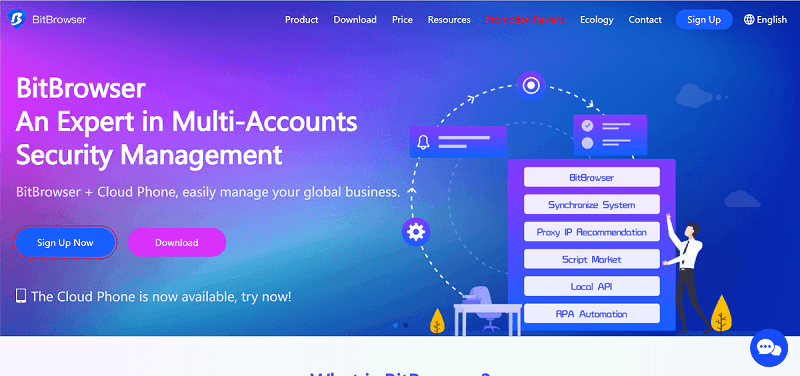
If you need to manage multiple accounts (like for work, shopping, or social media), BitBrowser is a powerful anonymous web surfing browser. It lets you create isolated browser profiles—each with a unique fingerprint, including time zone, screen resolution, and fonts—so every profile appears as a completely separate device. You can also assign independent IP addresses to each, making location tracking virtually impossible.
Unlike typical tools, BitBrowser supports both Chromium and Firefox kernels, giving users a familiar experience while boosting privacy. The client includes login history and operation logs for transparency, plus automatic password filling to reduce the risk of lost credentials. You can also browse the internet privately with built-in IP masking and fingerprint isolation. It supports multiple account logins at once—perfect for digital marketers, affiliate teams, and e-commerce sellers who need the best browser for anonymous browsing with true encrypted internet browsing support.
Pros
•Fake your IP address to remain anonymous online
•Customizable browser fingerprints to avoid tracking
•Supports Chromium & Firefox cores
•Built-in automation (RPA) and API support
Cons
•Requires some setup time for beginners
How to Use BitBrowser for Anonymous Internet Browsing
Another important point that sets BitBrowser apart from other products is how simple and easy it is to use. Getting started with BitBrowser takes less than 3 minutes. Here's how:
Step1. Create a New Profile
After installing, go to the "Browsers" tab. Then, click the "New Profile" button to start creating a new profile.
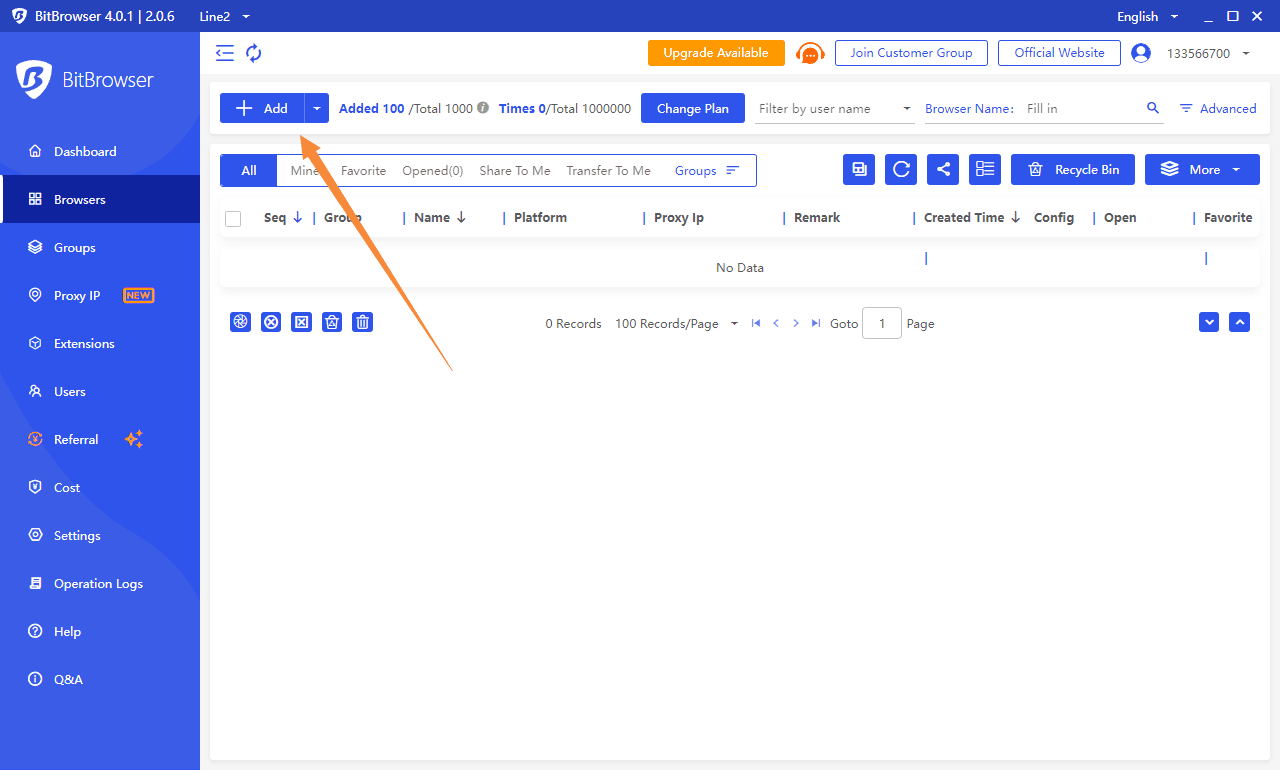
Step 2. Configure Fingerprints for the Profile
You can either generate a random fingerprint (ideal for quick setups) or manually tweak settings like language and WebRTC. You can also assign a unique IP to each profile.
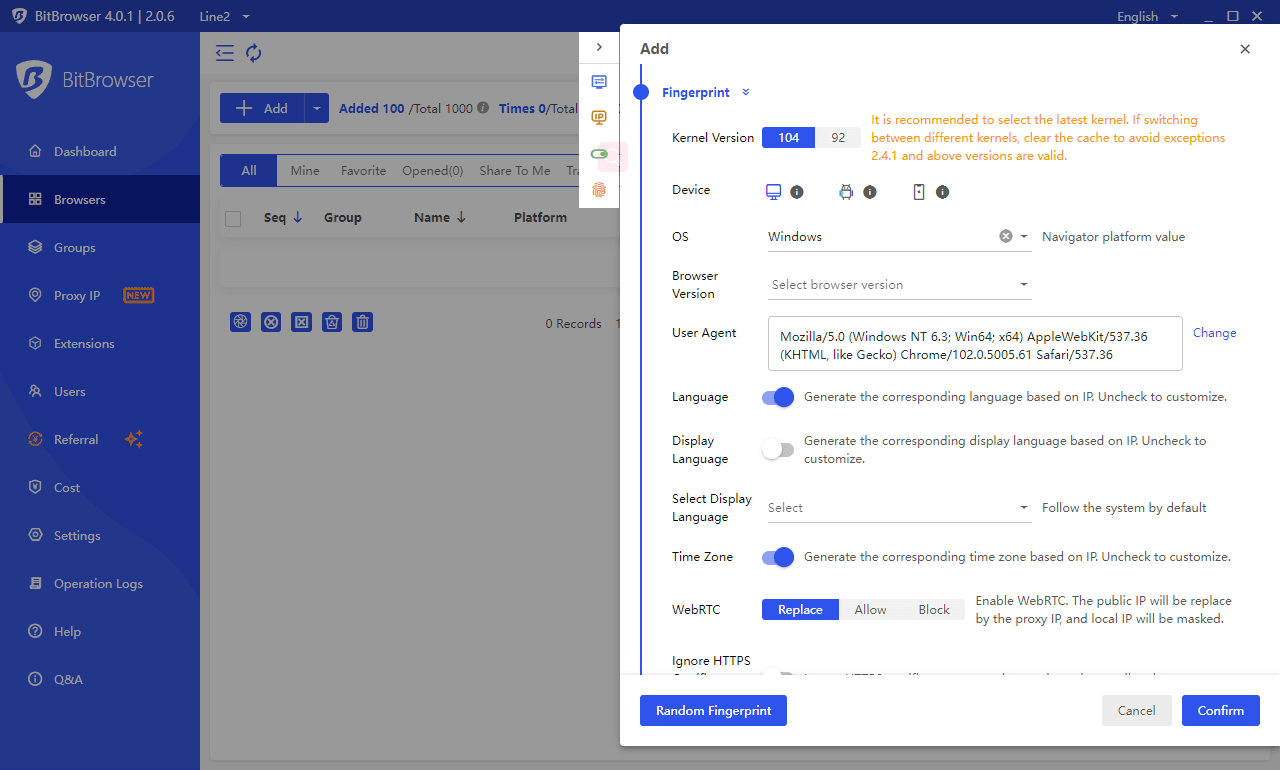
Step 3. Launch and Browse
Once your profile is ready, open it like a regular browser. No cookies, no trackers, and no footprints left behind. You will browse the Internet secretly, and no one can ever track your footprints!
2. Epic Privacy Browser – Block Trackers & WebRTC Leaks Automatically
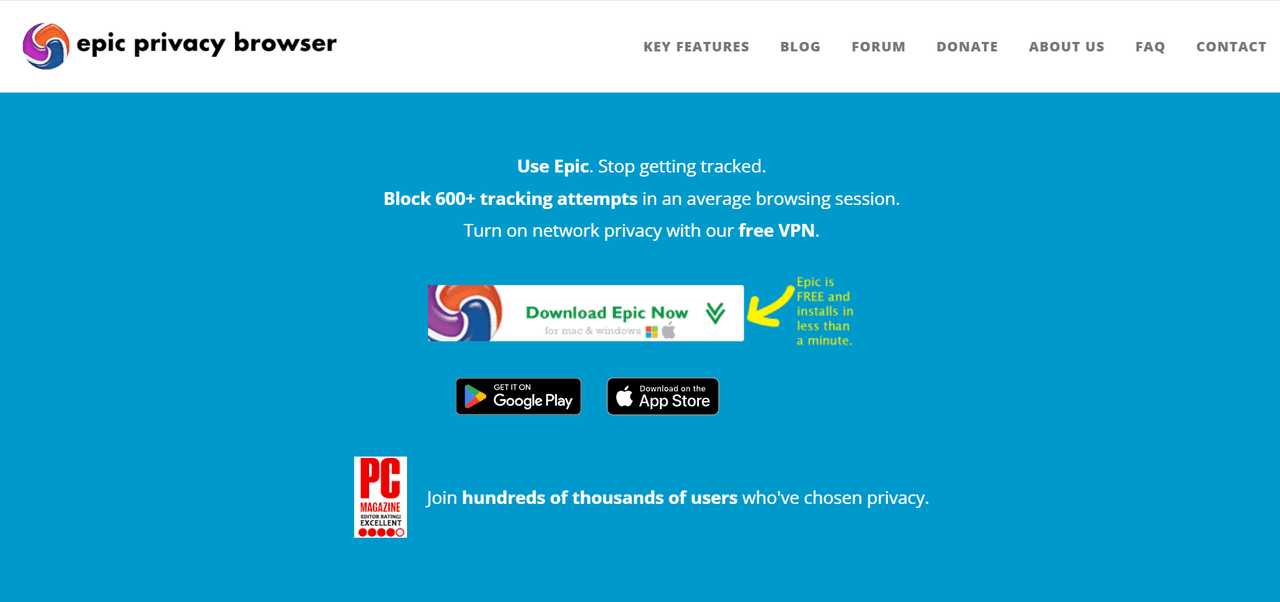
As one of the leading anti-tracking browsers, Epic Privacy Browser takes the "leave no trace" approach seriously. It automatically blocks trackers and prevents WebRTC leaks, which can expose your real IP address even when using a VPN. Every time you close Epic, it wipes your browsing history, cookies, and temporary files—like a self-destructing mission brief. This helps prevent targeted ads and protects your identity from fingerprinting scripts that use techniques like canvas probing to identify your device.
However, while Epic offers VPN-like privacy through its built-in proxy, many users report that it can be slower than expected. Plus, according to the feedback of many users, Epic's anti-detection performance is not as effective as it has claimed, suffering great criticism. And its user interface is not so friendly and thus needs improvement. Nevertheless, it remains a solid choice among the best anti-detect browsers for users prioritizing straightforward anti-tracking and leak prevention.
Pros:
•Obliterate all browsing evidence on exit.
•Stop fingerprinting scripts in their tracks.
•Surprisingly good at blocking autoplay videos.
Cons:
•Ineffective anti-detection performance.
•"VPN" is just a basic proxy that struggles with streaming.
•Unfriendly user interface that may ruin experiences.
3. LibreWolf – Disable Telemetry & Prevents Fingerprint Collection
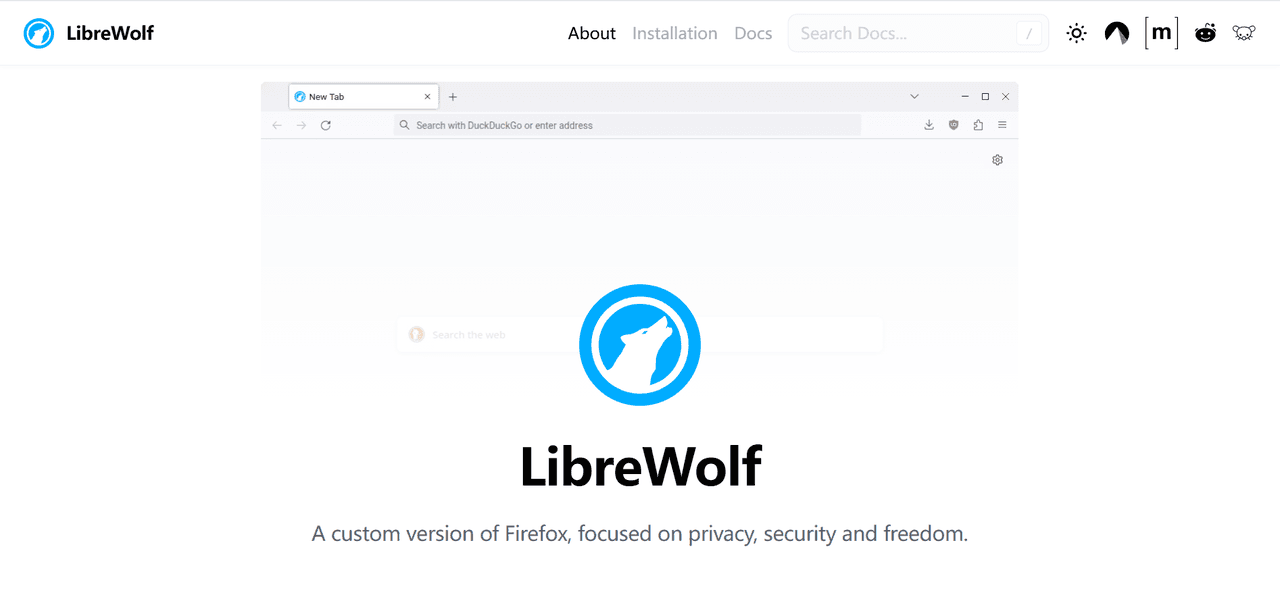
LibreWolf is a private browsing web browser app designed for privacy warriors who demand strict data protection. It actively disables telemetry and blocks any attempts to send data back to developers—even crash reports are kept private. Your default searches use privacy-focused engines like DuckDuckGo, Searx, or Qwant, so Google never tracks your activity. This allows you to browse Reddit anonymously and perform other online activities without leaving a trace.
However, LibreWolf's user interface is quite complex and less user-friendly, making it unsuitable for casual or non-technical users. Its advanced privacy features come with a steeper learning curve, so those seeking simplicity may want to consider other options, for example, BitBrowser.
Pros:
•Zero telemetry – not even crash reports.
•Block ads and trackers by default with uBlock Origin.
•Lightweight enough to run smoothly on old laptops.
Cons:
•No mobile apps, only desktop apps
•The interface is a bit complicated to navigate.
•Customization options are practically nonexistent.
4. Mullvad Browser – Combine Browser & VPN-Level Privacy
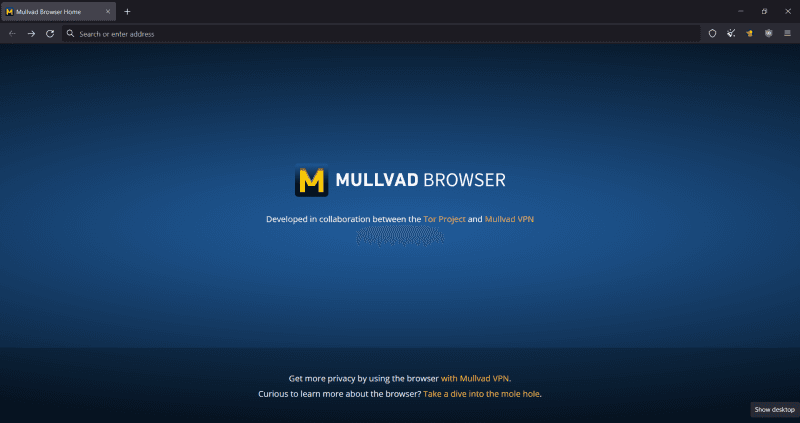
Mullvad Browser is a private browser with VPN-level protection, built by the creators of Tor and Mullvad VPN. It's designed for users who prioritize privacy over convenience—there's no account setup, no saved history, and no trackers. Paired with Mullvad VPN, it offers a truly end-to-end anonymous environment for browsing.
The browser creates a uniform fingerprint across all users, helping you bypass IP bans and avoid tracking attempts. It's ideal for private reading, data research, or secure downloads—not for logging into social media. If you need multi-account fingerprint separation, consider a specialized tool like BitBrowser instead.
Pros
•Uniform fingerprinting
•No login or account needed
•Blocks trackers by default
•Built for VPN pairing
Cons
•No multi-profile isolation
•Limited site compatibility
5. FreeNet – Enable Anonymous Access to Decentralized Web
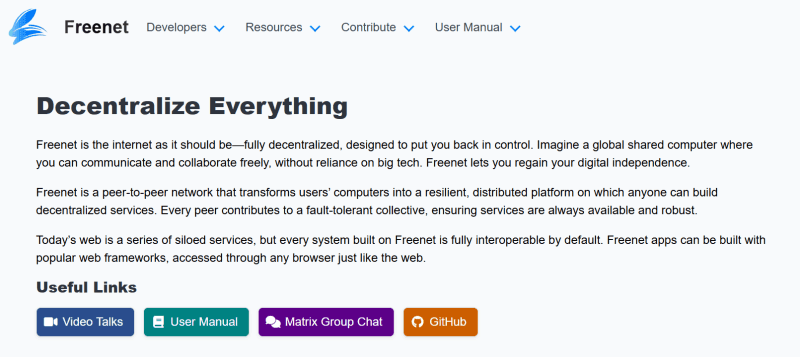
FreeNet is a decentralized, censorship-resistant network that enables users to anonymously share and access content. Unlike traditional web platforms, it has no central server—data is encrypted and distributed across peer-to-peer nodes. You can create or view "FreeSites" anonymously, making it ideal for accessing restricted information and communicating privately.
Designed for those who need secure and untraceable communication, FreeNet routes traffic through multiple encrypted hops, masking both user identity and content origin. It's especially useful for users in censored regions, activists, journalists, and privacy advocates who require more than just a browser that doesn't track.
Pros:
•No central server, resistant to censorship
•Anonymous "FreeSites" with no registration
•Ideal for whistleblowers and digital activists
Cons:
•Slow performance, poor browsing experience
•High learning curve, unfriendly UI
6. Waterfox – Strip Out Tracking While Retaining Firefox Power
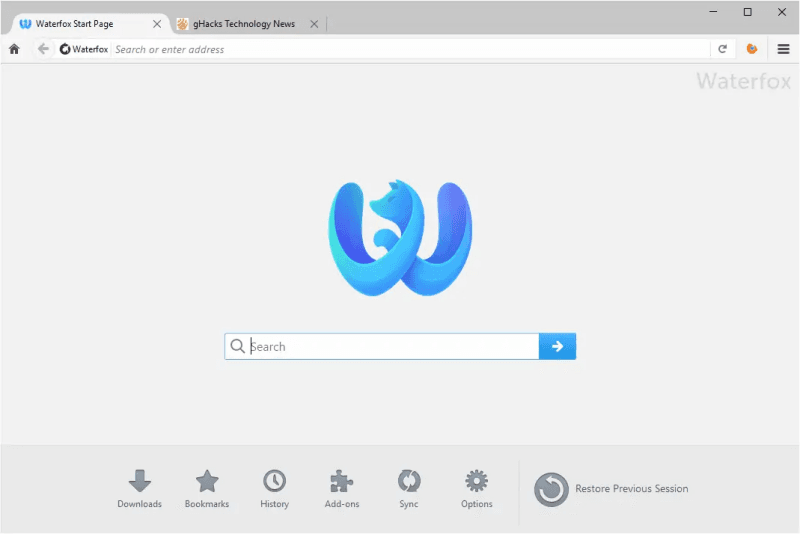
Waterfox is a privacy-focused browser based on Firefox, designed for users who value privacy but still want full usability. It removes all telemetry and tracking code, supports the full Firefox extension ecosystem, and works across Windows, macOS, and Linux without requiring any account or cloud sync.
However, Waterfox lacks built-in VPN, Tor routing, and fingerprint protection, which means it can still leak your IP address, User-Agent, or WebRTC info by default. It's not ideal for multi-account management or high-anonymity tasks. If you need stronger protection or an unblocked web browser, consider other tools like BitBrowser.
Pros
•No telemetry or tracking
•Full Firefox extension support
•Cross-platform compatibility
•No account or sync needed
Cons
•No built-in anonymity tools
•Slower updates than Firefox
Top 4 Anonymous Browsers for Beginners Seeking Basic Privacy
If you're new to private browsing and want a simple, user-friendly start, these anonymous browsers offer essential privacy features without overwhelming you. They block trackers, hide IPs, and let you surf with confidence, no advanced setup required.
7. Brave – Block Ads & Trackers by Default with a Chromium-Powered Engine
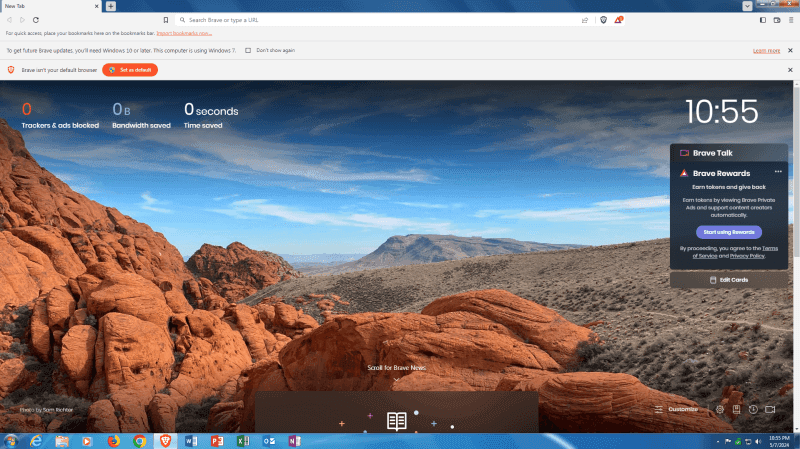
Brave is one of the best privacy browser choices for everyday users who want speed, ad-blocking, and privacy without technical complexity. It comes with built-in Brave Shields, blocking ads, trackers, cookies, and fingerprinting out of the box—no extensions required. Pages load faster, and your data stays local.
The browser also includes an "anonymous window with Tor" feature, letting users visit .onion sites without a full Tor setup. Fully compatible with Chrome extensions, Brave offers a private, smooth experience across platforms, making it one of the top secure browsers for iPhone and desktop alike.
Pros
•Built-in ad and tracker blocking
•Anonymous tabs with Tor access
•Fast page loading speed
•No account or sync required
Cons
•Some fingerprint data still leaks
•Tor tabs have limited anonymity
8. Tor Browser – Route Traffic via Onion Network to Hide IP(New)
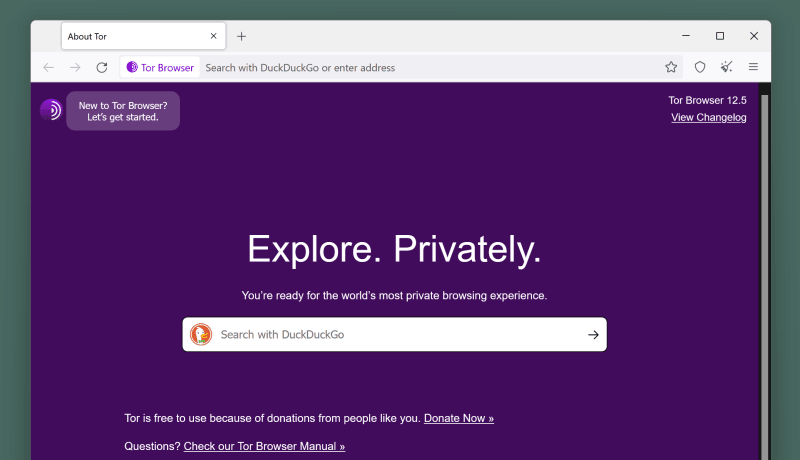
Tor Browser is a fully encrypted browser built for maximum anonymity. It routes your traffic through a three-layer onion network, making it extremely difficult for ISPs, governments, or websites to trace your real IP. It also blocks fingerprinting, disables scripts, and restricts tracking technologies by default.
Ideal for accessing censored content, onion sites, or sharing information anonymously, Tor is a go-to private web browser app for journalists, activists, and privacy defenders. However, it can't spoof devices or support multi-account use—if that's your need, BitBrowser is a better fit among the safest internet browsers.
Pros
•Encrypts all traffic via onion routing
•Block tracking and fingerprinting
•Access hidden onion websites
•Open-source and non-commercial
Cons
•Slower than normal browsers
•Lacks spoofing for multi-account use
9. DuckDuckGo Browser - Simplify Private Searching & Browsing
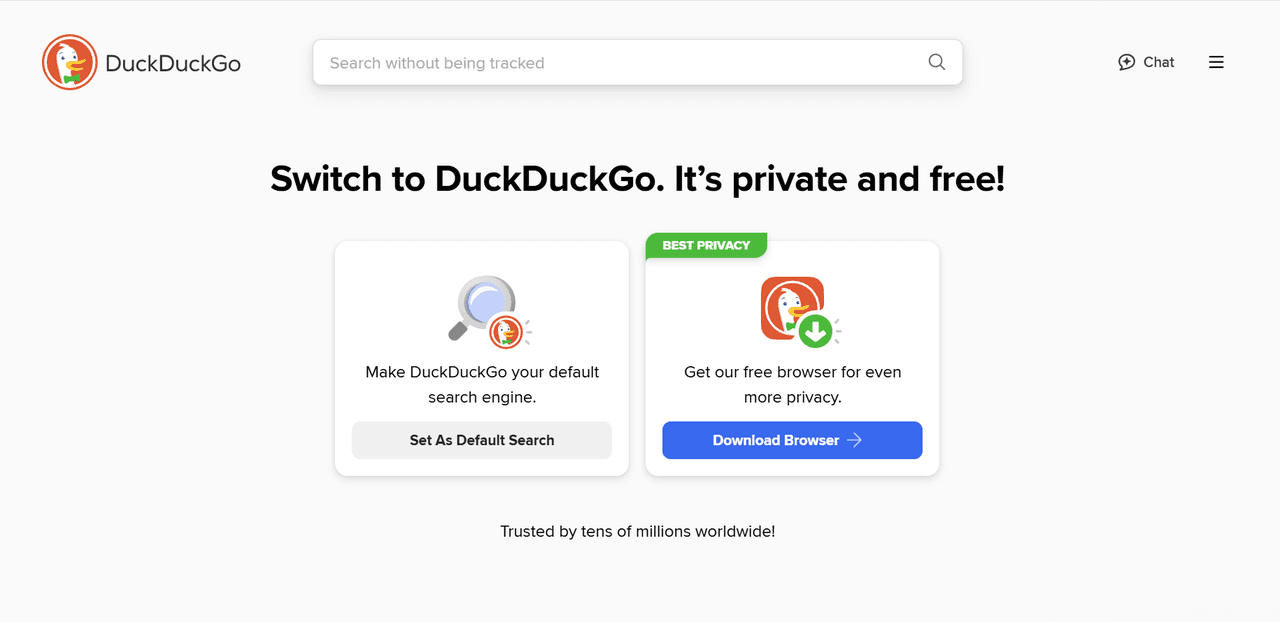
DuckDuckGo is designed as a secret Internet browser for anonymous search. Its main strength is cutting through the noise – it automatically blocks hidden trackers that follow you from site to site. When you visit a webpage, it forces sites to use encrypted HTTPS connections whenever possible, which I've found especially useful on public Wi-Fi. The clean interface has a tiny flame icon in the corner; click it to instantly burn away your search history like shredding a secret document.
While it works smoothly as a Chrome/Firefox extension, don't expect miracles. It's great for quick searches but struggles with complex tasks. For example, if you try logging into multiple social media accounts, they'll still detect that you're using the same device. So, this anonymous browser is more of a privacy band-aid than a full solution. To this end, it would be better to adopt a multi-login browser like BitBrowser, which will offer you full security of social media accounts.
Pros:
•Give every site a privacy report card (A+ to F).
•Effortlessly block creepy ads that stalk you across websites.
•Work on any device without slowing things down.
Cons:
•Useless for managing multiple accounts.
•Can't hide your browser's fingerprint.
•The mobile app drains the battery faster than expected.
10. Vivaldi - Offer Customizable Privacy Controls with Tracker Blocker
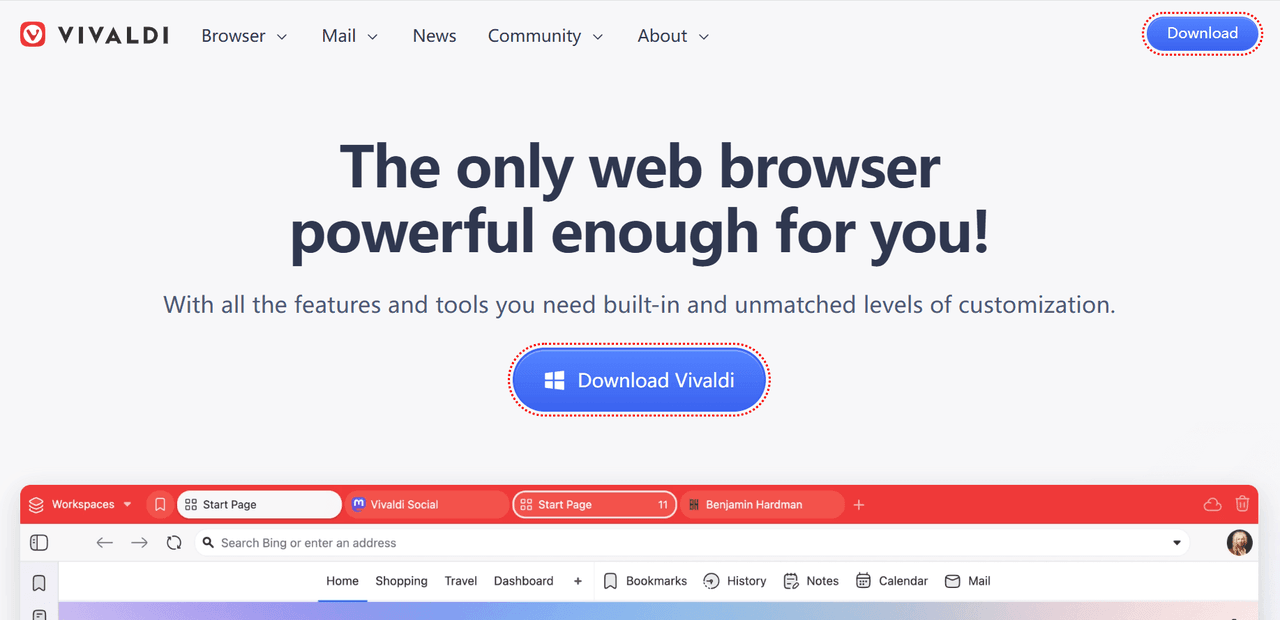
Vivaldi is a great anonymous web browser for those who want their browser to be highly personalized. Want vertical tabs on the left? Done. Need a built-in notepad that syncs across devices? Easy. Its ad blocker works better than most plugins, quietly killing pop-ups without constant "allow ads?" nags.
But here's the irony: For all its customization options, staying anonymous requires extra work. You'll need third-party plugins to fake your browser fingerprint, and even then, some sites can still see through the disguise. It's like wearing a mask but forgetting to change your distinctive walk. Want 100% untraceable? Try BitBrowser.
Pros:
•Bend every feature to your exact preferences.
•Built-in tools replace a dozen plugins.
•Encrypted sync keeps your data safe.
Cons:
•Privacy features feel like an afterthought.
•Can be overwhelming for casual users.
•Chew through RAM like candy.
Quick Comparison: Which Is the Best Browser for Privacy?
Here's a quick overview to help you choose from the top anonymous browsers based on your needs—whether you're seeking total anonymity, anti-tracking, or simple privacy for daily browsing.
•BitBrowser: Best for marketers, multi-account users, and anti-detection needs
•Epic Privacy Browser: Ideal for non-tech users who want auto anti-tracking
•LibreWolf: Great for privacy purists needing full control and no telemetry
•Mullvad Browser: Perfect for VPN users seeking unified browser-level anonymity
•FreeNet: Best for activists needing censorship resistance and true decentralization
•Waterfox: Suited for Firefox fans who want privacy without losing usability
•Brave: Recommended for casual users wanting fast, ad-free private browsing
•Tor Browser: Essential for anonymity seekers accessing hidden or censored content
•DuckDuckGo Browser: Ideal for mobile users who want private search + simple UI
•Vivaldi: Good for customization lovers who want flexible privacy settings
Conclusion
In this detailed article, I have compiled and introduced the 10 best anonymous web browsers picked by most users to stay untracked on the Internet. Each offers unique features to help you fulfill the goal of untraceable web browsing.
While others focus on part of the job, like hiding your history, BitBrowser tackles the big guns: fingerprint spoofing, IP masking, and team workflows. The free plan alone beats paid competitors. Between managing work accounts, avoiding price discrimination, and keeping ads from predicting your life choices, BitBrowser is the Swiss Army knife here. So, no more hesitation, and try out this wonderful anonymous web browser!
 BitBrowser
BitBrowser
 Multi-Account Management
Multi-Account Management Prevent Account Association
Prevent Account Association Multi-Employee Management
Multi-Employee Management
